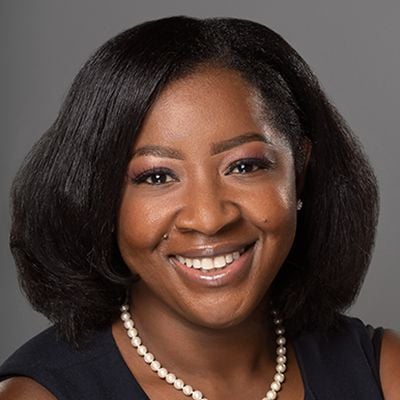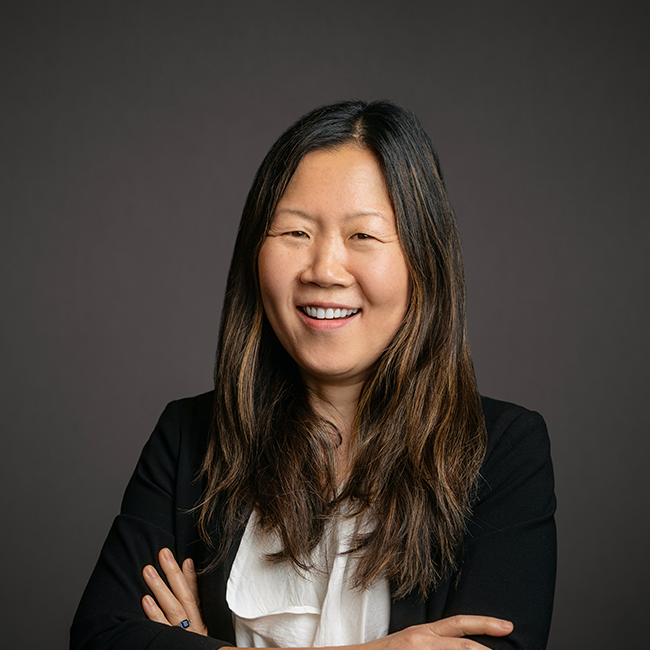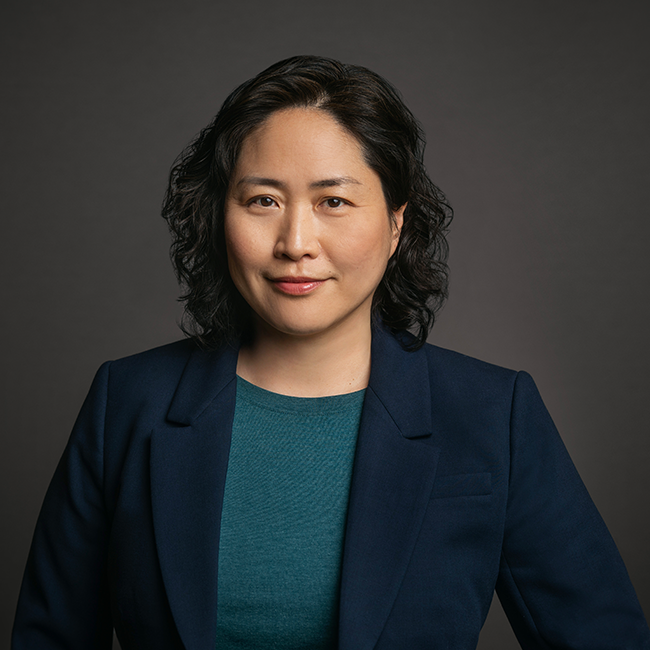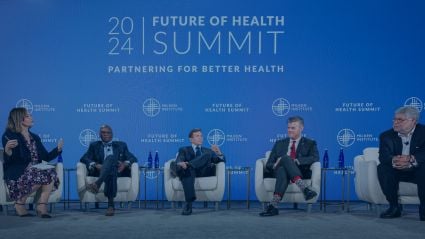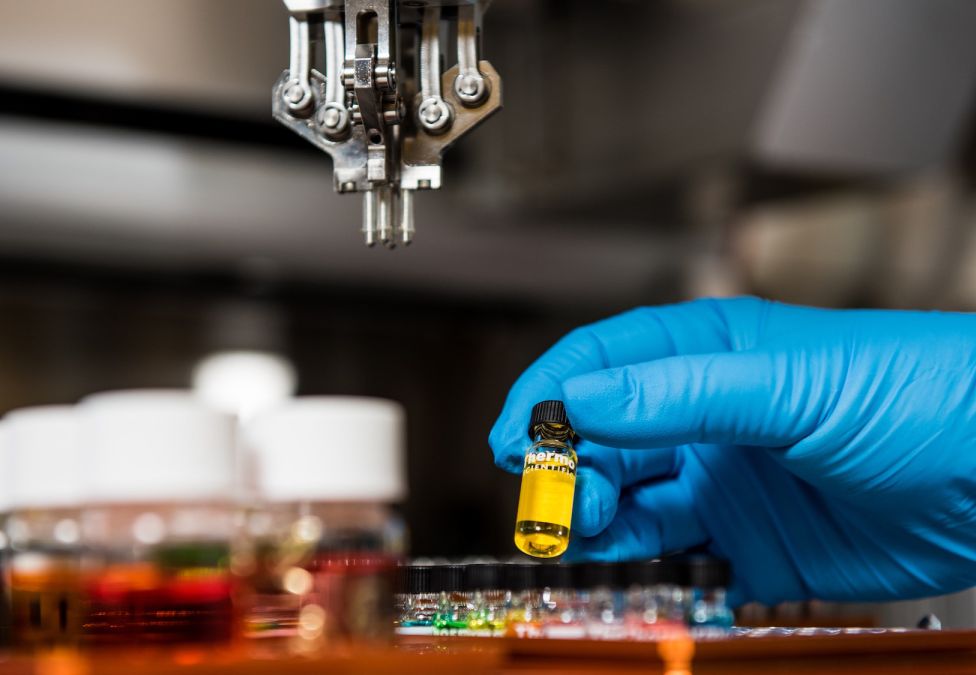
In this newsletter
It has been a busy year so far for the team at FasterCures. Over the last several months, we launched new programs aligned with our mission to lower unnecessary barriers to progress and accelerate biomedical innovations to all patients. Our team has convened experts from across multiple sectors, published white papers and issue briefs, been interviewed by the national media, all while working remotely. We are looking forward to returning to our offices after Labor Day and working face-to-face again, something we have missed. We are especially looking forward to seeing all of you again, whether as part of our working groups or at a Milken Institute convening.
Speaking of convenings, we recently held our annual Future of Health Summit, a multi-day gathering of the top leaders in health policy, regulation, industry, and academia. The sessions covered a diverse set of topics and set the stage for what we can and should be thinking about as we move through 2021.
Since you’re a supporter of FasterCures and our mission, there is one Summit session I think might be of particular interest to you: “Time Equals Lives: The Evolution of FasterCures.” Moderated by our Chairman Mike Milken, this panel discussion covers the central role we have played over the last 25 years in accelerating medical solutions.
As always, I am grateful for your support of FasterCures, our team, and our mission.
Esther Krofah
Executive Director
FasterCures and Center for Public Health, Milken Institute
Program Highlights
Preventing Future Pandemics
An urgent, high-stakes global priority
With the COVID-19 pandemic continuing to have a profound effect on lives and livelihoods here and around the world, one of the questions asked most frequently is, “How can we prevent this from happening again?” To help answer that question, earlier this year, FasterCures convened noted experts in the fields of pandemic preparedness, technology, public health, and finance to help us outline a set of principles that will form the foundation of a multi-sector approach to pandemic preparedness. With our partners, we released a new paper, “A Global Early Warning System for Pandemics: Mobilizing Surveillance for Emerging Pathogens,” which lays the framework for mobilizing a more rapid and nimble early warning system with robust global coordination.
To move these recommendations into sustained action, we are pleased to announce that we have joined the Rockefeller Foundation’s Pandemic Prevention Institute as a grantee to “convene leaders to galvanize the creation of an early warning system that coordinates action on data, insights, and proactive financing for pandemic preparedness.” We are proud to be part of this important initiative that is poised to make a real difference in addressing future biological threats.
At the 2021 Future of Health Summit, we explored this topic more deeply, alongside Rick Bright of the Rockefeller Foundation, Dennis Carroll, chair of the leadership board at the Global Virome Project, Phil Febbo, chief medical officer and senior vice president at Illumina, and Christine Parthemore, CEO, Council on Strategic Risks. The session was moderated by Betsy McKay of the Wall Street Journal and featured opening remarks from Sally Davies, UK special envoy on antimicrobial resistance, UK Government; master of Trinity College, Cambridge.
Cures for Life
Understanding the complex patient journey with cell and gene therapies
With dozens of new and groundbreaking cell and gene therapies expected to be approved by the FDA in the coming years, ensuring patients realize the benefits of these therapies will be a complex task for the health-care system. With this in mind, FasterCures created a resource that delineates the myriad challenges patients and caregivers may confront in their treatment journey.
Based on input collected during two workshops and a series of stakeholder interviews, we have developed a journey map that highlights many of the questions that arise for patients and caregivers when confronted with the option of starting a cell or gene therapy.
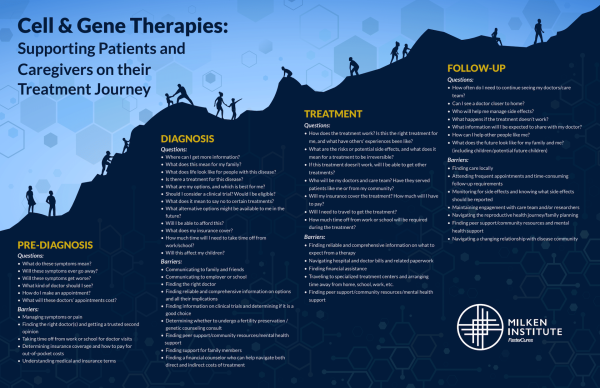
At the Future of Health Summit, we explored another critical aspect of cell and gene therapies–how to pay for them. Value assessment approaches have been looked to as a way to achieve higher-value health care, and many of these efforts are aimed at understanding the patient perspective. In this session, experts discussed the progress that has been made in recent years in this area and the challenges still needing to be addressed.
Protecting the Progress
Understanding how the COVID experience can shape the future of innovation
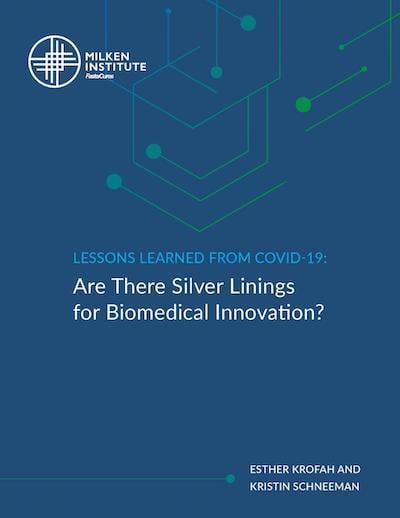
Earlier this year, we released a seminal report for the sector on the lessons learned from COVID, the output of several months of interviews and private convenings with representatives from government, regulatory agencies, academic research, industry, and advocates. The findings and recommendations span several key areas, including research collaboration, acceleration of product development, clinical trial design and execution, collection of real-world data and evidence, and addressing racial and ethnic disparities in health care. Taken together, we outline an ambitious agenda to ensure that what we learned over the last 18 months of the pandemic can form the basis for a new era of discovery and innovation.
After the report's release, we convened a working group of leaders to create a concrete “roadmap” for how the recommendations outlined in the report can be translated into concrete regulatory and legislative action. The roadmap will be released later this summer. These action items helped inform FasterCures’ comments on pending 21st Century Cures 2.0 legislation and the Biden Administration’s proposal to create a new ARPA-H agency.
Finally, we had the opportunity to convene a virtual forum in March to discuss many of the issues outlined in the report, featuring Francis Collins, director, National Institutes of Health, Richard Moscicki, chief medical officer and executive vice president of science and regulatory advocacy, Pharmaceutical Research and Manufacturers of America (PhRMA), Ellen Sigal, chairperson and founder, Friends of Cancer Research, and Janet Woodcock acting commissioner, US Food and Drug Administration.
Programs At-a-Glance
We have a robust slate of new projects this year, including:
-
Exploring how innovative financing models can help revitalize the pipeline of antibiotics that would address antimicrobial resistance (AMR), a crisis that is waiting in the wings. Working with Milken Institute experts, we are hosting a “Financial Innovations Lab” later this year to convene a multidisciplinary group of leaders to bring forward concrete recommendations on how to leverage private capital to spur advancements in antibiotic research.
-
Addressing diversity in clinical trials, an issue that requires greater attention, particularly in light of the COVID-19 pandemic. We have convened a working group of leaders in academic research, care delivery, patient advocacy, and industry to examine the landscape of the issue and develop an action plan for legislators, regulators, and product developers. For more, check out our recent Future of Health Summit session, “The New ROI: Advancing an Equitable and Inclusive Biomedical Research Ecosystem.”
Finally, FasterCures has continued our capacity-building work through TRAIN, LeadersLink, and our partnership with the Chan Zuckerberg Initiative Rare As One Program to support disease foundations in their efforts to accelerate therapies for their patient communities. We held a TRAIN webinar on Collecting and Sharing Patient Data where disease foundation leaders discussed strategies for governing and sustaining their data collection efforts. Our LeadersLink participants have been actively working to explore venture philanthropy as an option to advance their R&D research goals. As part of her capstone project, Dr. Katrin Ericson recently launched a podcast series to discuss the ups and downs of finding cures for devastating diseases. Later this year, FasterCures will release a new framework and a toolkit to support patient organization research partnership growth and development.
FasterCures in the News
POLITICO: “From shadows to solutions: health care post-COVID”
“What stood out to me,” said Esther Krofah, who directs the FasterCures and public health programs at the Milken Institute, “is how much we can fix.” Emerging from the pandemic, “there’s this new found energy,” she said, a recognition that while a whole lot of things may be broken in health care, they don’t all have to stay broken.
POLITICO: “One way that COVID origin doesn’t matter”
“Whether it’s zoonotic or from a lab, it’s exposed our gaps in response,” Esther Krofah told (Politico) Nightly. “Collectively, as a global community, we were unprepared. We were significantly underinvesting and we had a false sense of safety and preparedness,” even after brushes with pandemic flu, Zika, Ebola, SARS and MERS, Krofah said.
FORBES: “How Vaccine Companies Are Battling Covid-19 Variants”
“The good news is that most of the vaccines that have either been authorized by the FDA or are expected to be authorized in the coming months show a “general efficacy, similar to wildtype, for the B.1.1.7 variant,” says Esther Krofah, the executive director of FasterCures at the Milken Institute.
FORBES: “The Race To Keep Antibody Treatments One Step Ahead Of Covid-19 Variants”
Yasmeen Long, a director at the Milken Institute’s FasterCures, which tracks Covid-19 vaccines and treatments, is optimistic. “Less than a year ago we were tracking less than 30 treatments,” says Long. Now there are 326 treatments currently in development. “I think things are looking positive on the horizon for us to mitigate this pandemic,” she says.”
SCIENCE NEWS: “Here’s what makes 4 promising COVID-19 vaccines unique — and potentially useful”
Help may be on the way. Another 251 COVID-19 vaccines are at some stage of development with 60 far enough along to be tested in people, says Carly Gasca, Associate Director at FasterCures. That edge could come from logistics. To be effective, vaccines have to get into people’s bodies. So unlike the Pfizer and Moderna shots, vaccines that don’t have to be frozen have a better chance of being used in rural or remote areas and places that don’t have resources to buy and maintain freezers, Gasca says.
THE SCIENTIST: “What’s Ahead for SARS-CoV-2 Research in 2021”
“A series of…trials sponsored by the National Institutes of Health, for example, several of which are expected to be completed later this year, are testing immune modulators, monoclonal antibodies, and blood thinners in groups of COVID-19 patients. In other trials, some repurposed antibiotics and an antifungal have also shown promise and could make it to the clinic this year, says Yasmeen Long, of FasterCures.”
SMARTBRIEF: “The Post-Pandemic Life Sciences Landscape: How a crisis enabled innovation, collaboration and a new way forward”
Decentralized trials, hybrid approaches and remote monitoring were talked about fondly and frequently before the arrival of the coronavirus, though they were infrequently put into practice, said Kristin Schneeman, director of programs at FasterCures, a center of the Milken Institute, and co-author of the report “Lessons Learned From COVID-19: Are There Silver Linings for Biomedical Innovation?”
Staff Updates
We have welcomed two new members to the FasterCures team this year.
Henrietta Awo Osei-Anto, MA, MPP, joined FasterCures, a Center of the Milken Institute, as director. Awo was previously a senior program officer with the National Academies of Sciences, Engineering, and Medicine (NASEM), where she directed federally-funded and congressionally-mandated studies on a variety of topics with health and policy implications. Prior to NASEM, Awo was at the American Hospital Association. Awo earned a bachelor’s degree from Illinois Wesleyan University and a master’s degree in public policy from the University of Chicago.
Alisha Sud is an associate director at FasterCures, where she supports work related to health equity, cell and gene therapies, and building a global early warning system for pandemics. Prior to joining FasterCures, Sud was an analyst at the Albright Stonebridge Group, where she worked with health-focused clients on regulatory challenges, market entry, and business strategy. Sud received a BA in international development and Mandarin Chinese from the University of Vermont and a certificate in international studies from the Johns Hopkins University School of Advanced International Studies.
Upcoming Events
-
Global Conference, October 17-20, 2021, Los Angeles, CA
-
Partnering for Patients Forum, December 7, 2021, Washington, DC
For more information on sponsorship opportunities, please contact Amy Fehir.
